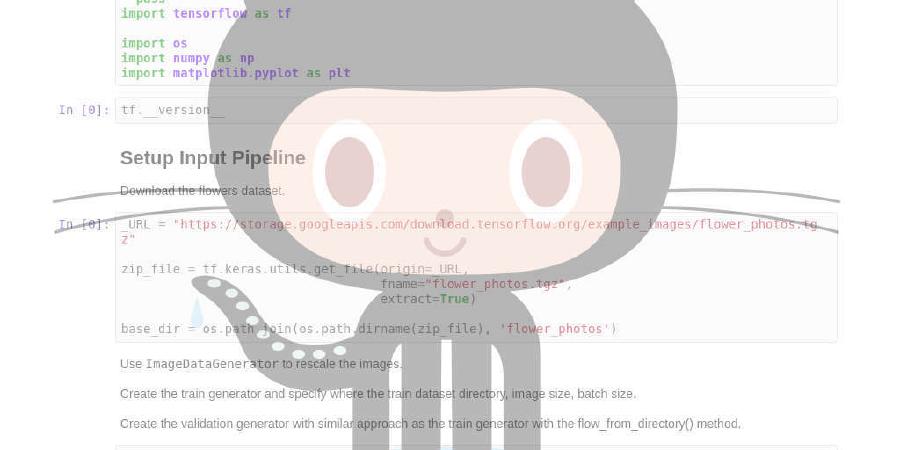google/deepvariant

DeepVariant is an analysis pipeline that uses a deep neural network to call genetic variants from next-generation DNA sequencing data.
| repo name | google/deepvariant |
| repo link | https://github.com/google/deepvariant |
| homepage | |
| language | Python |
| size (curr.) | 91167 kB |
| stars (curr.) | 1893 |
| created | 2017-11-23 |
| license | BSD 3-Clause “New” or “Revised” License |
DeepVariant
DeepVariant is an analysis pipeline that uses a deep neural network to call genetic variants from next-generation DNA sequencing data. DeepVariant relies on Nucleus, a library of Python and C++ code for reading and writing data in common genomics file formats (like SAM and VCF) designed for painless integration with the TensorFlow machine learning framework.
How to run
We recommend using our Docker solution. The command will look like this:
BIN_VERSION="0.9.0"
sudo docker run \
-v "YOUR_INPUT_DIR":"/input" \
-v "YOUR_OUTPUT_DIR:/output" \
google/deepvariant:"${BIN_VERSION}" \
/opt/deepvariant/bin/run_deepvariant \
--model_type=WGS \ **Replace this string with exactly one of the following [WGS,WES,PACBIO]**
--ref=/input/YOUR_REF \
--reads=/input/YOUR_BAM \
--output_vcf=/output/YOUR_OUTPUT_VCF \
--output_gvcf=/output/YOUR_OUTPUT_GVCF \
--num_shards=$(nproc) **This will use all your cores to run make_examples. Feel free to change.**
For more information, see:
- Quick Start
- Full documentation list
- Best practices for multi-sample variant calling with DeepVariant
How to cite
If you’re using DeepVariant in your work, please cite:
A universal SNP and small-indel variant caller using deep neural networks. Nature Biotechnology 36, 983–987 (2018). Ryan Poplin, Pi-Chuan Chang, David Alexander, Scott Schwartz, Thomas Colthurst, Alexander Ku, Dan Newburger, Jojo Dijamco, Nam Nguyen, Pegah T. Afshar, Sam S. Gross, Lizzie Dorfman, Cory Y. McLean, and Mark A. DePristo. doi: https://doi.org/10.1038/nbt.4235
Additionally, if you are generating multi-sample calls using our DeepVariant and GLnexus Best Practices, please cite:
Accurate, scalable cohort variant calls using DeepVariant and GLnexus. bioRxiv 10.1101/2020.02.10.942086v1 (2020). Taedong Yun, Helen Li, Pi-Chuan Chang, Michael F. Lin, Andrew Carroll, and Cory Y. McLean. doi: https://doi.org/10.1101/2020.02.10.942086
Why Use DeepVariant?
- High accuracy - In 2016 DeepVariant won PrecisionFDA Truth Challenge for best SNP Performance. DeepVariant maintains high accuracy across data from different sequencing technologies, prep methods, and species.
- Flexibility - Out-of-the-box use for PCR-positive samples and low quality sequencing runs, and easy adjustments for different sequencing technologies and non-human species.
- Ease of use - No filtering is needed beyond setting your preferred minimum quality threshold.
- Cost effectiveness - With a single non-preemptible n1-standard-16 machine on Google Cloud, it costs ~$9.11 to call a 30x whole genome and ~$0.39 to call an exome. With preemptible pricing, the cost is $2.19 for a 30x whole genome and $0.09 for whole exome (not considering preemption).
- Speed - On a 64-core CPU-only machine, DeepVariant completes a 50x WGS in 5 hours and an exome in 16 minutes (1). Multiple options for acceleration exist, taking the WGS pipeline to as fast as 40 minutes (see external solutions).
- Usage options - DeepVariant can be run via Docker or binaries, using both on-premise hardware or in the cloud, with support for hardware accelerators like GPUs and TPUs.
(1): Time estimates do not include mapping.
DeepVariant Setup
Prerequisites
- Unix-like operating system (cannot run on Windows)
- Python 2.7
Official Solutions
Below are the official solutions provided by the Genomics team in Google Brain.
| Name | Description |
|---|---|
| Docker | This is the recommended method. |
| Build from source | DeepVariant comes with scripts to build it on Ubuntu 14 and 16, with Ubuntu 16 recommended. To build and run on other Unix-based systems, you will need to modify these scripts. |
| Prebuilt Binaries | Available at gs://deepvariant/. These are compiled to use SSE4 and AVX instructions, so you will need a CPU (such as Intel Sandy Bridge) that supports them. You can check the /proc/cpuinfo file on your computer, which lists these features under “flags”. |
External Solutions
The following pipelines are not created or maintained by the Genomics team in Google Brain. Please contact the relevant teams if you have any questions or concerns.
| Name | Description |
|---|---|
| Running DeepVariant on Google Cloud Platform | Docker-based pipelines optimized for cost and speed. Code can be found here. |
| DeepVariant-on-spark from ATGENOMIX | A germline short variant calling pipeline that runs DeepVariant on Apache Spark at scale with support for multi-GPU clusters (e.g. NVIDIA DGX-1). |
| Parabricks | An accelerated DeepVariant pipeline with multi-GPU support that runs our WGS pipeline in just 40 minutes, at a cost of $2-$3 per sample. This provides a 7.5x speedup over a 64-core CPU-only machine at lower cost. |
| DNAnexus DeepVariant App | Offers parallelized execution with a GUI interface (requires platform account). |
| Nextflow Pipeline | Offers parallel processing of multiple BAMs and Docker support. |
| DNAstack Pipeline | Cost-optimized DeepVariant pipeline (requires platform account). |
Contribution Guidelines
Please open a pull request if you wish to contribute to DeepVariant. Note, we have not set up the infrastructure to merge pull requests externally. If you agree, we will test and submit the changes internally and mention your contributions in our release notes. We apologize for any inconvenience.
If you have any difficulty using DeepVariant, feel free to open an issue. If you have general questions not specific to DeepVariant, we recommend that you post on a community discussion forum such as BioStars.
License
Acknowledgements
DeepVariant happily makes use of many open source packages. We would like to specifically call out a few key ones:
- Boost Graph Library
- abseil-cpp and abseil-py
- CLIF
- GNU Parallel
- htslib & samtools
- Nucleus
- numpy
- SSW Library
- TensorFlow and Slim
We thank all of the developers and contributors to these packages for their work.
Disclaimer
This is not an official Google product.









